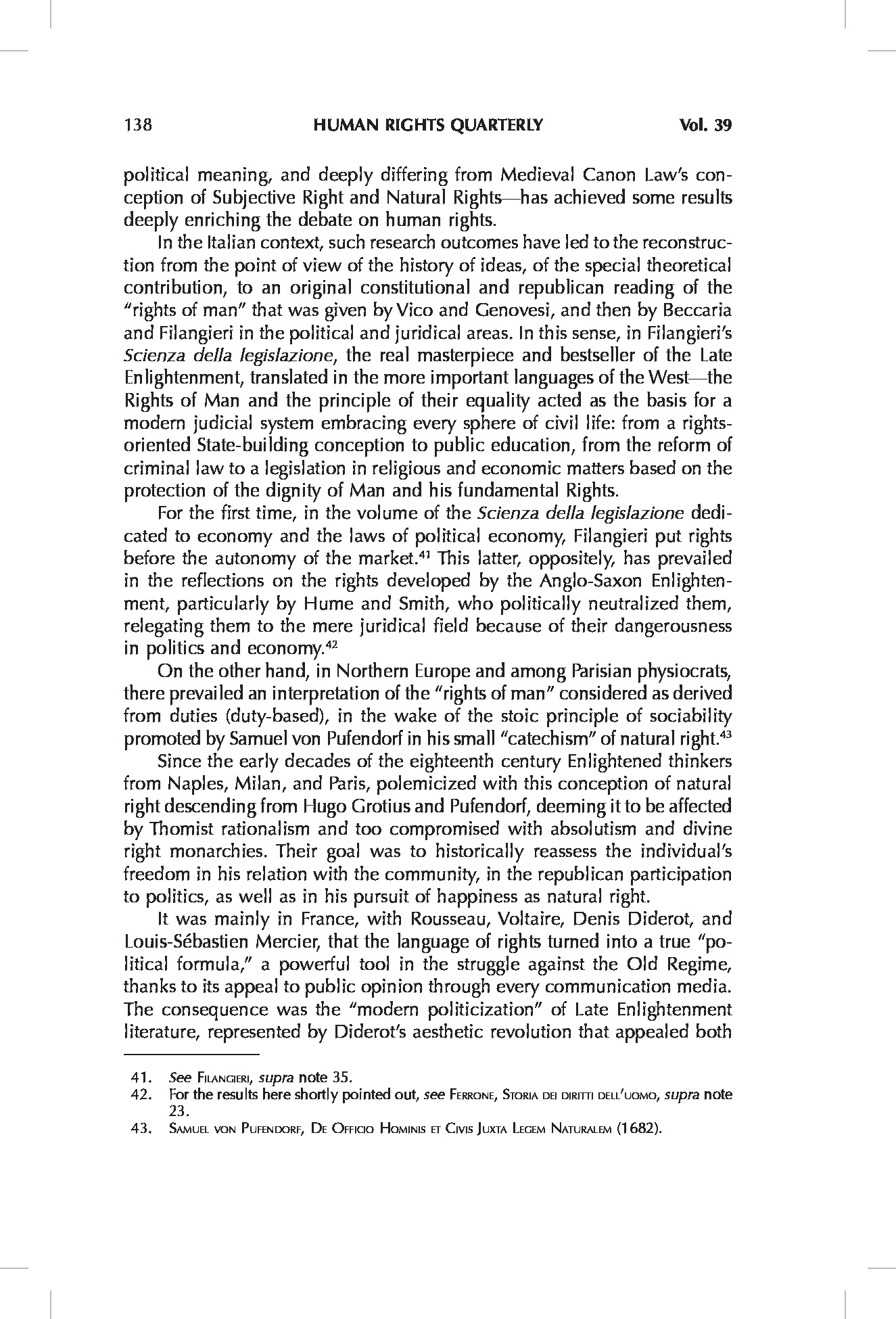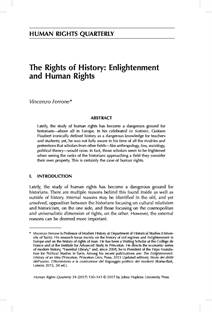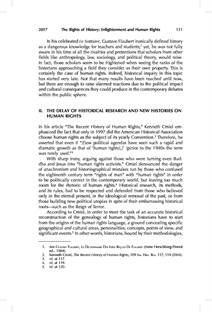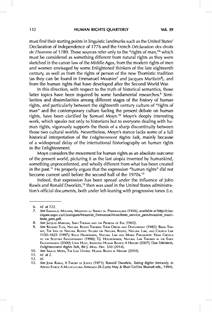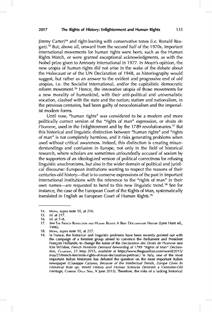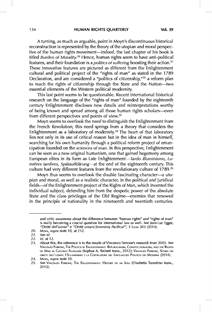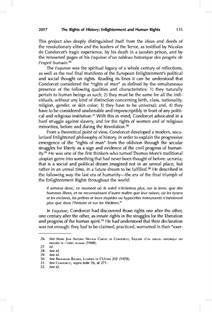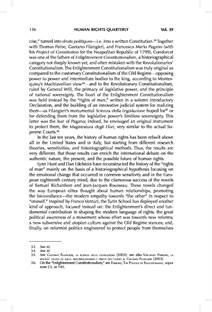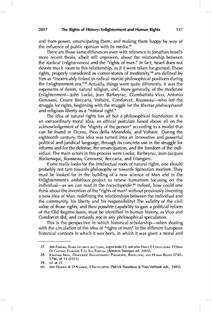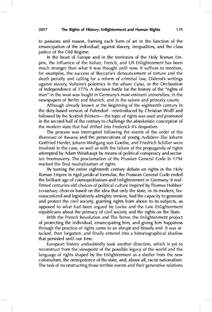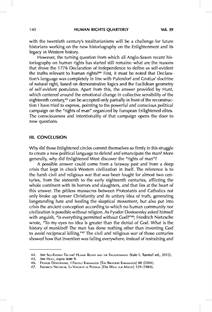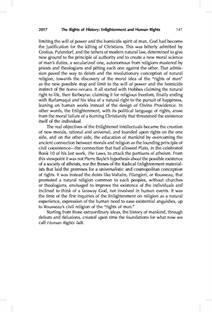Vol. 39
138
HUMAN RIGHTS QUARTERLY
political meaning, and deeply differing from Medieval Canon Law’s con-
ception of Subjective Right and Natural Rights—has achieved some results
deeply enriching the debate on human rights.
In the Italian context, such research outcomes have led to the reconstruc-
tion from the point of view of the history of ideas, of the special theoretical
contribution, to an original constitutional and republican reading of the
“rights of man” that was given by Vico and Genovesi, and then by Beccaria
and Filangieri in the political and juridical areas. In this sense, in Filangieri’s
Scienza della legislazione, the real masterpiece and bestseller of the Late
Enlightenment, translated in the more important languages of the West—the
Rights of Man and the principle of their equality acted as the basis for a
modern judicial system embracing every sphere of civil life: from a rights-
oriented State-building conception to public education, from the reform of
criminal law to a legislation in religious and economic matters based on the
protection of the dignity of Man and his fundamental Rights.
For the first time, in the volume of the Scienza della legislazione dedi-
cated to economy and the laws of political economy, Filangieri put rights
41
before the autonomy of the market. This latter, oppositely, has prevailed
in the reflections on the rights developed by the Anglo-Saxon Enlighten-
ment, particularly by Hume and Smith, who politically neutralized them,
relegating them to the mere juridical field because of their dangerousness
42
in politics and economy.
On the other hand, in Northern Europe and among Parisian physiocrats,
there prevailed an interpretation of the “rights of man” considered as derived
from duties (duty-based), in the wake of the stoic principle of sociability
43
promoted by Samuel von Pufendorf in his small “catechism” of natural right.
Since the early decades of the eighteenth century Enlightened thinkers
from Naples, Milan, and Paris, polemicized with this conception of natural
right descending from Hugo Grotius and Pufendorf, deeming it to be affected
by Thomist rationalism and too compromised with absolutism and divine
right monarchies. Their goal was to historically reassess the individual’s
freedom in his relation with the community, in the republican participation
to politics, as well as in his pursuit of happiness as natural right.
It was mainly in France, with Rousseau, Voltaire, Denis Diderot, and
Louis-Sébastien Mercier, that the language of rights turned into a true “po-
litical formula,” a powerful tool in the struggle against the Old Regime,
thanks to its appeal to public opinion through every communication media.
The consequence was the “modern politicization” of Late Enlightenment
literature, represented by Diderot’s aesthetic revolution that appealed both
41. See FilanGieri, supra note 35.
42. For the results here shortly pointed out, see Ferrone, storia Dei Diritti Dell’uomo, supra note
23.
43. samuel von PuFenDorF, De oFFicio Hominis et civis Juxta leGem naturalem (1682).
Dettagli
- Page N°:9
- Publication:
- Author:Vincenzo Ferrone

